
Code: 04612267
System Theories and A Priori Aspects of Perception
by J. S. Jordan
This book takes as a starting point, John Dewey's article, The Reflex Arc Concept in Psychology, in which Dewey was calling for, in short, the utilisation of systems theories within psychology, theories of behaviour that capture i ... more
- Language:
 English
English - Binding: Hardback
- Number of pages: 366
Publisher: North-Holland, 1998
- More about this

You might also like
Give this book as a present today
- Order book and choose Gift Order.
- We will send you book gift voucher at once. You can give it out to anyone.
- Book will be send to donee, nothing more to care about.
More about System Theories and A Priori Aspects of Perception
You get 593 loyalty points
 Book synopsis
Book synopsis
This book takes as a starting point, John Dewey's article, The Reflex Arc Concept in Psychology, in which Dewey was calling for, in short, the utilisation of systems theories within psychology, theories of behaviour that capture its nature as a vastly-complex dynamic coordination of nested coordinations. This line of research was neglected as American psychology migrated towards behaviourism, where perception came to be thought of as being both a neural response to an external stimulus and a mediating neural stimulus leading to, or causing a muscular response. As such, perception becomes a question of how it is the perceiver creates neural representations of the physical world. Gestalt psychology, on the other hand, focused on perception itself, utilising the term Phenomenological Field; a term that elegantly nests perception and the organism within their respective, as well as relative, levels of organisation. With the development of servo-mechanisms during the second world war, systems theory began to take on momentum within psychology, and then in the 1970s William T Powers brought the notion of servo-control to perception in his book, "Behavior: The Control of Perception". Since then, scientists have come to see nature not as linear chain of contingent cause-effect relationships, but rather, as a non linear, unpredictable nesting of self referential, emergent coordinations, best described as Chaos theory. The implications for perception are astounding, while maintaining the double-aspect nature of perception espoused by the Gestalt psychologists. In short, system theories model perception within the context of a functioning organism, so that objects of experience come to be seen as scale-dependent, psychophysically-neutral, phenomenological transformations of energy structures, the dynamics of which are the result of evolution, and therefore, a priori to the individual case. This a priori, homological unity among brain perception and world is revealed through the use of systems theories and represents the thrust of this book. All the authors are applying some sort of systems theory to the psychology of perception. However, unlike Dewey we have close to a century of technology we can bring to bear upon the issue. This book should be seen as a collection of such efforts.
 Book details
Book details
Book category Książki po angielsku Society & social sciences Psychology Cognition & cognitive psychology
236.49 €
- Full title: System Theories and A Priori Aspects of Perception
- Author: J. S. Jordan
- Language:
 English
English - Binding: Hardback
- Number of pages: 366
- EAN: 9780444826046
- ISBN: 0444826041
- ID: 04612267
- Publisher: North-Holland
- Weight: 680 g
- Dimensions: 234 × 156 × 22 mm
- Date of publishing: 21. April 1998
Trending among others
-

Thinking, Fast and Slow
13.72 € -23 % -

Thinking, Fast and Slow
17.25 € -10 % -

The Art of Thinking Clearly
8.27 € -17 % -

How Emotions Are Made
11.29 € -23 % -

Gödel, Escher, Bach
21.79 € -16 % -

The Paradox of Choice
13.52 € -19 % -

How to Think Critically
13.82 € -2 % -
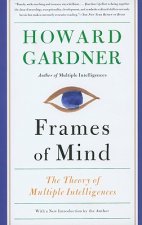
Frames of Mind
20.78 € -19 % -

250 Brief, Creative & Practical Art Therapy Techniques250 Brief, Creative & Practical Art Therapy Techniques
26.64 € -29 % -

Chaos, Creativity, and Cosmic Consciousness
17.96 € -
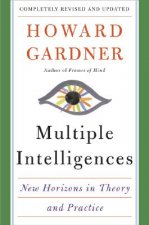
Multiple Intelligences
22.60 € -

Archetypal Imagination
13.92 € -22 % -
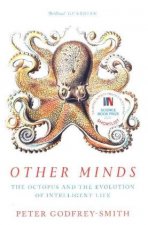
Other Minds
10.59 € -32 % -

Trauma and Memory
18.46 € -19 % -

Willpower
12.20 € -22 % -

Shadows Of The Mind
15.23 € -28 % -

Hare Brain, Tortoise Mind
14.32 € -21 % -

Marshmallow Test
8.97 € -24 % -

How We Learn
11.09 € -22 % -

Power of Mindful Learning
14.02 € -24 % -

Creativity
12.71 € -25 % -

Courage to Create
13.41 € -16 % -

Love & Will
16.14 € -15 % -

The Memory Illusion
11.40 € -20 % -

Where Good Ideas Come From
12.20 € -22 % -

Getting Started with EEG Neurofeedback
48.04 € -4 % -
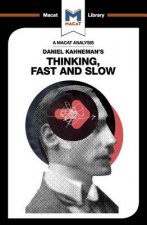
Analysis of Daniel Kahneman's Thinking, Fast and Slow
8.07 € -15 % -
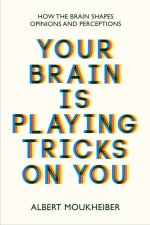
Your Brain Is Playing Tricks On You
18.26 € -

WHY WE LOVE
16.95 € -23 % -

Enigma of Reason
12.41 € -21 % -

Geography of Thought
12 € -18 % -

Risk Savvy
10.99 € -23 % -

Meme Machine
13.72 € -24 % -

Cognitive Psychology
85.99 € -

Biggest Bluff
11.09 € -19 % -

Intelligence: A Very Short Introduction
9.07 € -26 % -

Memory: A Very Short Introduction
9.28 € -28 % -

Thinking and Reasoning: A Very Short Introduction
10.59 € -18 % -

Manipulated Mind: Brainwashing, Conditioning, and Indoctrination
13.82 € -19 % -

Natural History of Human Thinking
24.62 € -

Intuition for Starters
17.75 € -1 % -

Five Minds for the Future
20.48 € -28 % -

Believing Brain
16.24 € -23 % -

White Bears and Other Unwanted Thoughts
21.79 € -3 % -

Making Of Memory
19.67 € -18 % -

MIRRORING PEOPLE
16.14 € -29 % -

Power of Persuasion
14.52 € -19 % -

Genius Frequency
21.39 € -

Creativity and Madness
36.33 €
Osobní odběr Bratislava a 2642 dalších
Copyright ©2008-24 najlacnejsie-knihy.sk Wszelkie prawa zastrzeżonePrywatnieCookies






 Vrácení do měsíce
Vrácení do měsíce Zdarma od 49.99 €
Zdarma od 49.99 € 02/210 210 99 (8-15.30h)
02/210 210 99 (8-15.30h)